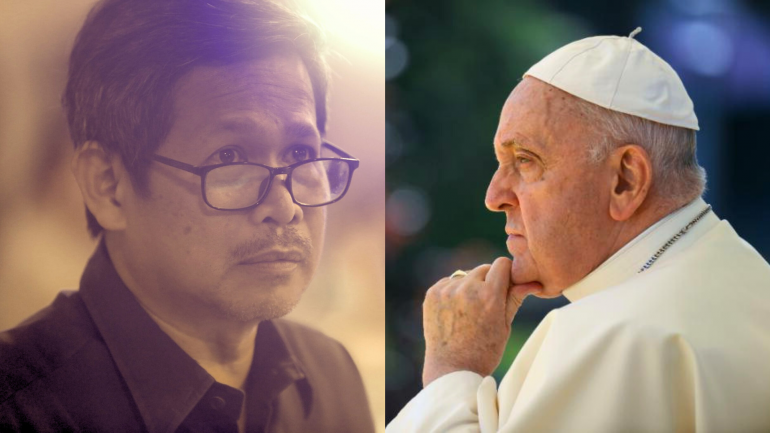“Honor Pope Francis not only with our tributes”, says Philippines environmental activist priest

In his welcome message during Friday’s multi-sectoral forum on the Verde Island Passage (VIP) held in Quezon City, Fr. Edwin Gariguez, lead convenor of the Protect VIP Network, said, “Let us honor Pope Francis not only with our tributes but with our courage—to live out his legacy by choosing the path of ecological conversion.”
“Although it is with a heavy heart that we convene today, mourning the passing of Pope Francis—a prophetic voice of our time and a true champion of ecological justice. His bold and passionate witness reminded us that the cry of the earth is also the cry of the poor. And today, here in this forum, we respond to both,” he said, during the forum dubbed “Piliin Ang VIP” (Choose the VIP).
“We gather this morning in a spirit of grief and commitment. We grieve the loss of Pope Francis, whose prophetic voice awakened the world's conscience to the urgent need to care for our common home. And yet, even as we mourn, we gather here in commitment—to carry forward his legacy, to turn our grief into action, and to renew our shared resolve to protect and defend the Earth and its most vulnerable communities,” said Gariguez.
He cited Pope Francis in his 2015 encyclical Laudato Si’: “We know that technology based on the use of highly polluting fossil fuels—especially coal, but also oil and, to a lesser degree, gas—needs to be progressively replaced without delay… Politics and business have been slow to react in a way commensurate with the urgency of the challenges facing our world.” (LS 165)
Gariguez added the recent 2023 apostolic exhortation Laudate Deum, where Pope Francis reiterated the urgent call for a “transition towards clean energy sources such as wind and solar energy and the abandonment of fossil fuels,” lamenting that this transition “is not progressing at the necessary speed.” (LD 55)
“The Verde Island Passage is a living testimony to what is at stake. It is not only the ‘center of the center’ of global marine biodiversity—it is also a lifeline for our coastal communities. This cradle of life, shared by the provinces of Batangas, Mindoro (Oriental and Occidental), Marinduque, and Romblon, is under siege. From the residue of fossil fuel economies, the scars of oil spills, and the looming threat of unregulated development,” he said.
He added, “This is not only an ecological loss; it is a social injustice. For when ecosystems collapse, it is always the poor who suffer first and suffer most—our fisherfolk, our coastal families, and our future generations.”
Gariquez called on those present—policymakers, government leaders, scientists, fisherfolk, civil society, and the Church—to choose life over profit, stewardship over exploitation, and our common home.
Gariguez recognized the presence of Department of Environment and Natural Resources Secretary Maria Antonia Yulo-Loyzaga and other leaders from the House and Senate.
“We are grateful for your presence—but even more, we ask for your partnership. We call on you to walk with us, to work with civil society, and to institutionalize protection for the VIP in ways that are enduring, just, and rooted in solidarity.”
Again citing Pope Francis, “Humanity still can work together in building our common home,” Gariguez sai”d, “The time to act is now. Let this forum be remembered not just for the words spoken, but for the commitments forged.”
The forum advocated for the VIP’s inclusion in the Expanded National Integrated Protected Areas System (ENIPAS) and its designation as a United Nations Educational, Scientific and Cultural Organization (UNESCO) World Heritage Site.
He concluded his message, “May we remember: this mission is not just about protecting a place. It is about protecting people—especially the poor and the vulnerable—and securing the future of our children. Let us honor Pope Francis not only with our tributes but with our courage—to live out his legacy by choosing the path of ecological conversion.”
Radio Veritas Asia (RVA), a media platform of the Catholic Church, aims to share Christ. RVA started in 1969 as a continental Catholic radio station to serve Asian countries in their respective local language, thus earning the tag “the Voice of Asian Christianity.” Responding to the emerging context, RVA embraced media platforms to connect with the global Asian audience via its 21 language websites and various social media platforms.












